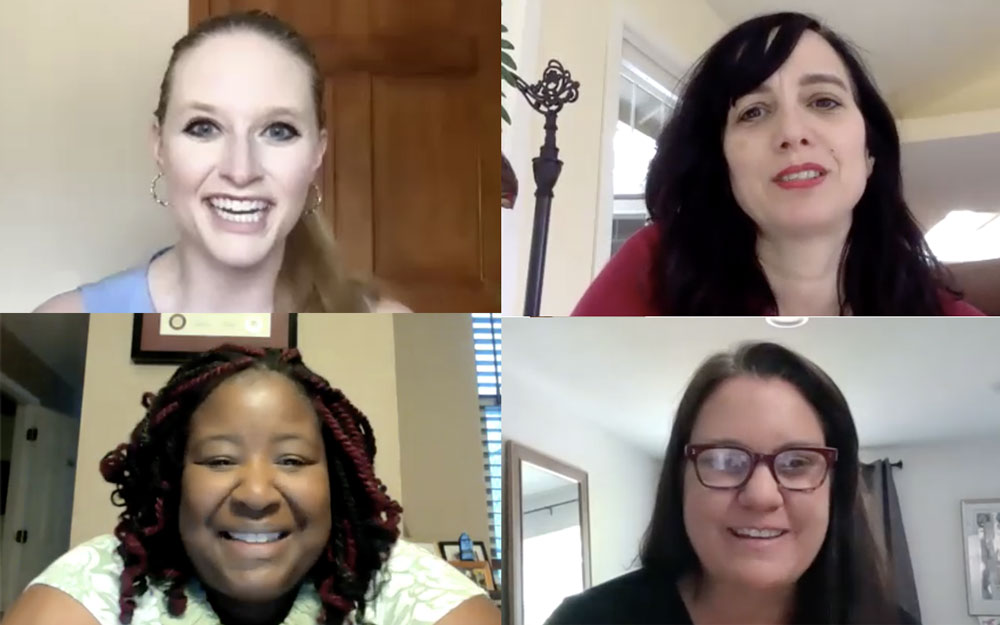
Women and women entrepreneurs of color face unique barriers to entrepreneurship that need to be addressed at every policy level. This was the topic of discussion during a NAWBO Advocacy Days panel moderated by Jennifer Kelly, program officer – policy in entrepreneurship for the Kauffman Foundation.
“Now’s the time we believe for America to ensure that the best and boldest ideas for supporting entrepreneurship are discussed, debated and acted on by policymakers at every level, which is why advocacy work and policy engagement is so important,” says Jennifer.
The panel featured three women entrepreneurs of diverse backgrounds: Caroline Cummings, CEO of Varo Ventures, Tanya Morris, president and founder of Mom Your Business, and Danielle Varda, CEO and founder of Visible Network Labs. They discussed the obstacles they faced in their businesses and why we need to be advocates.
“We have to have a voice at the table,” says Caroline. “We always hear about leaning in, leaning in, leaning in, which is wonderful, but I think people need more specifics about how to do that because oftentimes it’s uncomfortable. As women, we’re often not taught to speak out, to raise our hand all the time or to be loud, because then we get accused of all sorts of things like being bossy.”
Danielle grew up and entered the workforce surrounded by supportive women. When she went to start her own company, a man asked her if she’d be the CEO. “It was a real reality check for me, especially in the world of health tech,” she says. “I walked into a world with too much confidence. It was the first time in my life where people looked me in the eye and said you can’t be a CEO. The introduction of doubt in my life is what switched something for me where I knew I had to turn into an advocate.”
As a black woman entrepreneur, Tanya shared the unique challenges that black and brown women face in becoming entrepreneurs. In fact, she says the biggest challenge is that many women of color start businesses out of necessity. “We don’t start a business because it was part of our family upbringing or we have great ideas and have been encouraged to do so,” Tanya shares. “Throughout our history, we have started businesses out of necessity, whether it’s to put a child through school or food on the table or to make a major purchase.”
Tanya says white women can help their black and brown sisters by:
1) Understanding this challenge.
2) Helping them formalize their businesses so they can generate money.
3) Networking these women to help them access the capital they need to grow.
“African American women entrepreneurs are the fastest growing group and receive the least amount of money,” says Tanya. “We receive less than 1% of venture capital. Even with other women starting VC firms, we still have not gone beyond the 1%. So how our white sisters can help us is really by creating some pathways to gain access to capital.”
The panelists also gave these tips for how to be a successful advocate and build relationships with policymakers:
- Treat policymakers like part of your extended team and regularly send them updates, so they understand what’s happening in your business on the ground level.
- Tell your stories with data, which can be numbers but also information and pictures.
- Give them tools and information they can then use to convince others.
- Check out America’s New Business Plan and use the resources in your conversations with policymakers.
- Follow your policymaker’s social media pages and sign up for their newsletters.
- Look for policymakers who are holding events like informal coffees and show up for the opportunity to build relationships.
- Assemble a group of women business owners and invite your local policymaker in to talk—be assertive.

